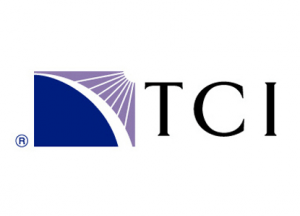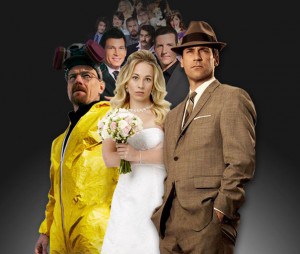 Bresnan Communications, the nation’s 13th largest cable operator with 308,000 customers in Colorado, Montana, Wyoming, and Utah, has been sold to Cablevision for $1.36 billion dollars — $4,300 a subscriber — well above the asking price of one billion dollars, including the company’s debt obligations.
Bresnan Communications, the nation’s 13th largest cable operator with 308,000 customers in Colorado, Montana, Wyoming, and Utah, has been sold to Cablevision for $1.36 billion dollars — $4,300 a subscriber — well above the asking price of one billion dollars, including the company’s debt obligations.
Providence Equity Partners Inc. of Providence, Rhode Island, majority owner of Bresnan unloaded the cable company to help boost its earnings for clients. Private equity firms like Providence have been suffering in the current economic climate, turning in their worst returns since 2000. Many are selling off holdings to pay investors.
Bresnan spokesman Shawn Beqaj said the sale had nothing to do with founder William Bresnan’s death last November at age 75.
Bresnan, 30 percent owned by Comcast, today specializes in providing service in the sparsely populated mountain west states that have been ignored by larger companies. At least 44 percent of Bresnan’s business is in Montana, where 688 of the company’s 1,300 employees work. But the company’s founder, William Bresnan didn’t start out providing service in any of the states where the company operates today.
 The acquisition by Cablevision, known mostly for its suburban New York City-area cable systems, would bring Bresnan’s current owners a considerable bonus over the asking price, and Cablevision (and the debt-financing banks) will pay in cash.
The acquisition by Cablevision, known mostly for its suburban New York City-area cable systems, would bring Bresnan’s current owners a considerable bonus over the asking price, and Cablevision (and the debt-financing banks) will pay in cash.
Other bidders included Suddenlink and a company controlled by former cable czar Dr. John Malone.
Cablevision managed to leverage the deal with less than $400 million of its own equity, financing the remaining $1 billion dollars between Citigroup and Bank of America Merrill Lynch in non-recourse debt. That means if Cablevision’s buyout of Bresnan falters, the banks can only recoup their losses by seizing and selling the acquired Bresnan systems. They can’t go after Cablevision’s other cable systems or sports ventures to make up the difference.
Considering Bresnan subscribers in the Northern Rockies face little prospect of robust competition, and Bresnan cable broadband can easily exceed broadband speeds offered by telephone rival Qwest, most analysts expect few problems from the deal.
[flv]http://www.phillipdampier.com/video/CNBC Bresnan Acquired by Cablevision 6-14-10.flv[/flv]
CNBC explains the Bresnan-Cablevision Deal. (3 minutes)
Bresnan Founder’s Story Is Echoed Across the Entire Cable Industry

The late William Bresnan -- Founder, Bresnan Communications
Bresnan’s journey through the cable industry over several decades tells the story of the often-ruthless deal-making, horse-trading, and customer-financed mergers and acquisitions starting after cable deregulation in 1984. Rates spiked to pay ever-increasing sums to buy and sell cable properties. To own a cable system, it was said in the late 1980s, was a license to print money.
Bresnan’s involvement in the cable industry began with a job in the engineering department of a midwestern cable company and moved into management at a number of companies, most now long-gone after waves of consolidation. Those with cable television dating back to the 1970s may even recall some of the names:
H&B American Cablevision: Operator of rural cable systems, most with around 12 channels, offering residents clear reception of over-the-air television signals. They had a loyal customer base, stable earnings, but little potential for growth.
TelePrompTer: The nation’s largest urban and suburban cable operator through much of the 1970s, but a 1972 bribery scandal for a cable franchise agreement in Trenton, N.J., lead to bribery and perjury charges for TelePrompTer’s principal owner, Irving Berlin Kahn. The famous songwriter’s nephew ordered the company to spend nearly everything to help mount his defense. The TelePrompTer scandal would ultimately force the company to sell itself to…
Group W Cable: Westinghouse acquired the financially-troubled TelePrompTer in 1981. Group W itself would exit the business by 1986 with an acquisition feeding frenzy among four other cable operators — American Television and Communications Corp.; Tele-Communications Inc.; Comcast Corp. and Daniels & Associates Inc. Ironically, only Comcast would survive merger-mania intact. ATC systems eventually became a part of Time Warner Cable. TCI systems were acquired by Comcast. Daniels was itself a buyer and seller of cable systems.
 Bresnan Communications was founded in 1984, not in the mountain west, but in the upper peninsula of Michigan where Bresnan acquired and ran several small cable systems thanks to the help of cable czar Dr. John Malone, CEO of Tele-Communications, Inc., (TCI). Millions of Americans are familiar with TCI’s own journey through consolidation, first becoming AT&T Broadband and then later as a part of Comcast.
Bresnan Communications was founded in 1984, not in the mountain west, but in the upper peninsula of Michigan where Bresnan acquired and ran several small cable systems thanks to the help of cable czar Dr. John Malone, CEO of Tele-Communications, Inc., (TCI). Millions of Americans are familiar with TCI’s own journey through consolidation, first becoming AT&T Broadband and then later as a part of Comcast.
Over the next 14 years, Bresnan expanded operations with Malone’s help. At one point Bresnan jointly operated cable systems with TCI in northern Michigan, Wisconsin, Minnesota, Nebraska, Georgia and Mississippi serving approximately 660,000 customers. The company even bought cable systems in post-Communist Poland and in Chile, the latter eventually sold outright to TCI.
Bresnan Customers Benefit from Founder’s Technical Background
What set Bresnan Communications apart from the rest of the smaller players in the industry was the founder’s in-depth understanding of cable technology. Bresnan understood where the industry was going, and had an insatiable appetite for new technology that would also leverage additional growth in the business.
Bresnan spent heavily to upgrade his cable systems, deploying the hybrid fiber-coaxial cable architecture (HFC) in 1997 which is still in use at most cable systems today. HFC would set the stage for Bresnan to compete with satellite television’s multi-hundred channels, and would let him sell telephone and broadband service to his customers.
That was unprecedented for smaller cable operators. In the 1990s, it was still common to find small cable systems running only a few dozen channels. If these legacy cable systems didn’t upgrade, DISH and DirecTV could eat them for lunch. For those that would raise the necessary money, upgrades were performed. For those that couldn’t, many would exit the business, selling their cable systems to larger, better-equipped enterprises.
Buy Low, Sell High
Beyond anything else, Bresnan was a businessman. He had a track record of acquiring cable systems at fire sale prices and selling them for a tidy profit. So during the height of the dot.com boom, he could hardly ignore a 1999 call from Microsoft co-founder Paul Allen. Flush with cash to spend, Allen saw cable systems as a key component of his dream for a “wired world.” Cable companies owned dozens of networks brimming with content that he believed could help drive people to broadband. Owning both the content and the pipeline to deliver it could drive up the value of both, and Allen could control both. He had already established himself as owner of Charter Communications, itself a medium-sized cable operator.
Allen’s cable acquisition shopping spree inflated values of cable systems to all-time highs, finally reaching nearly $5,000 per subscriber in crazed bidding wars. Allen offered $3.1 billion dollars for Bresnan’s small cable empire. Bresnan sold.
Bresnan Communications Recreated
By 2003, the dot.com boom was well over and done with, and those high-spending online tycoons saw the value of their acquisitions and enterprises erode away. For Allen, his much-treasured vision had become a cash-sucking albatross. Charter Communications’ stock by then had lost 95 percent of its original value. Consumer protection regulation had also arrived in 2003, putting a stop to subscriber rate increase-fueled bidding wars. Cable rates had risen 61 percent from the time the industry was deregulated in 1984 until legislative relief took effect in early 2003. When the Money Party ended, stock prices for cable operators crashed.
Bresnan saw the deflation in the industry as an opportunity to buy his way back in, and started shopping. That year AT&T Broadband, formerly TCI, found itself considering an acquisition offer from rival Comcast. AT&T owned cable systems large and small, several of which were in the Northern Rockies, hardly cable’s fast lane. While Comcast had big plans for AT&T cable systems in larger areas, it would be willing to part with smaller systems acquired as part of the deal.
By the time Bresnan arrived with an offer in hand, cable system values dropped further, and his bid for the roughly 300,000 subscribers that comprise today’s Bresnan Communications would be accepted at the fire sale price of $2,100 per subscriber.
Since the acquisition, Bresnan upgraded its systems, offering speeds up to 15/1 Mbps in its rural service area and maintains a reputation in the industry for running well-managed cable operations.
![]() Dolan was speaking at the Bank of America Merrill Lynch Media, Communications & Entertainment conference in Newport Beach, Calif.
Dolan was speaking at the Bank of America Merrill Lynch Media, Communications & Entertainment conference in Newport Beach, Calif. The issue of a-la-carte pricing, which allows cable customers to pick and choose individual channels, has been the nightmare scenario for cable systems and programmers, who fear it would force most niche channels out of business and dramatically cut earnings for cable systems. The industry also warns it would force every cable subscriber to rent set top boxes to manage channel lineups for every television in the home.
The issue of a-la-carte pricing, which allows cable customers to pick and choose individual channels, has been the nightmare scenario for cable systems and programmers, who fear it would force most niche channels out of business and dramatically cut earnings for cable systems. The industry also warns it would force every cable subscriber to rent set top boxes to manage channel lineups for every television in the home.

 Subscribe
Subscribe









